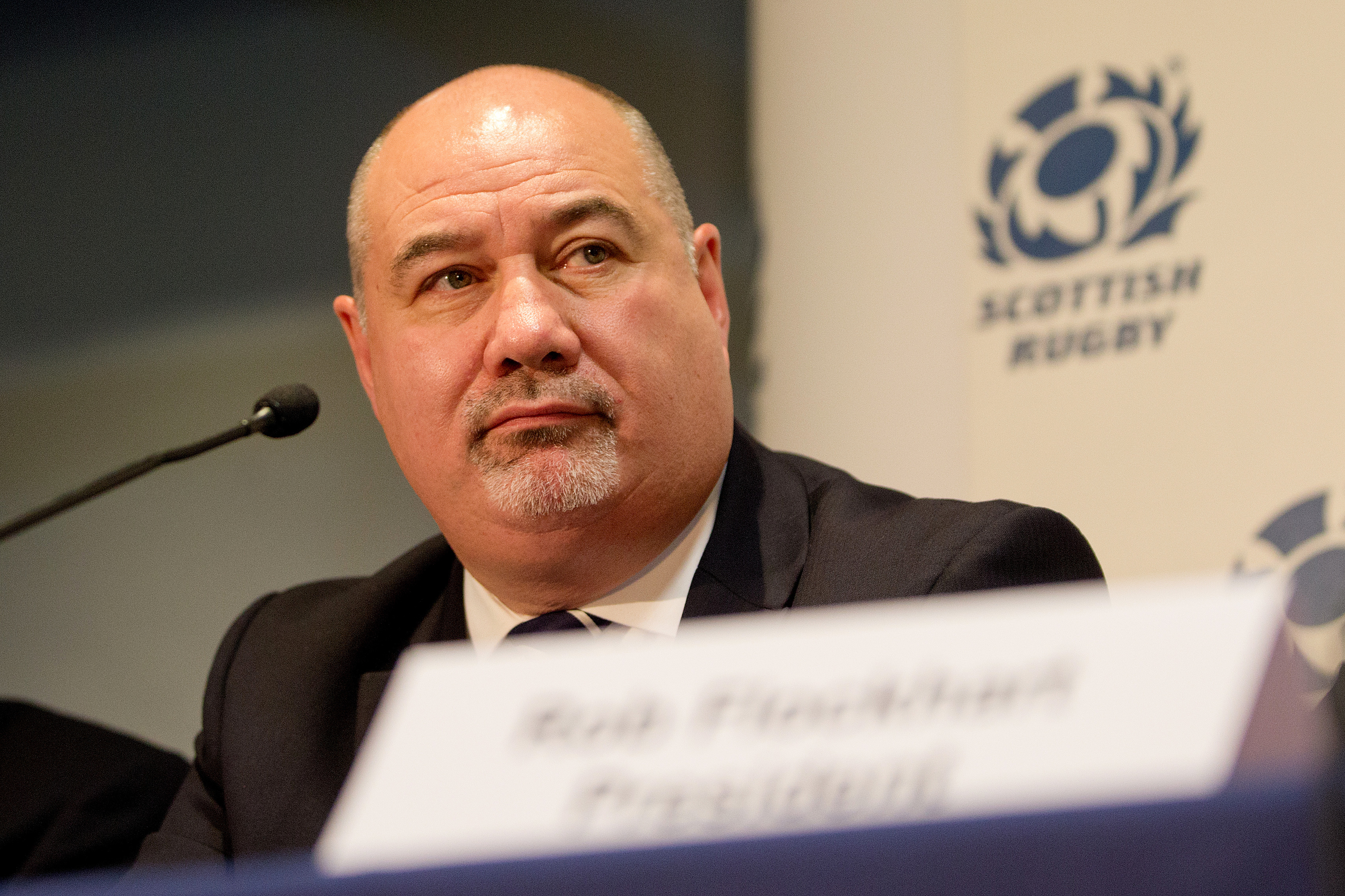There’s a good chance I’m not with the majority on this, but I think Scottish Rugby Chief Executive Mark Dodson has been a success in the role.
The often abrasive and sometimes even confrontational Englishman has turned Scottish Rugby into a profit-making business. Since he moved into Murrayfield in 2011, turnover is way up, debt is way down (although not entirely eliminated, as they claimed this summer) and rugby internationals at Murrayfield are a hot ticket, selling out even games against minor nations.
On the pitch, 2019 has been a bit of a flatline, but if you recall what the state of rugby in Scotland representative rugby at all levels was like in 2011, there’s been clear improvement there as well, across the board.
It’s not an unqualified endorsement, though. A bad Six Nations in the spring will have us all the way back to the square one of 2011.
Club rugby and grassroots are struggling, although that’s been largely a demographic trend that hasn’t been successfully arrested.
Neither has Dodson avoided controversy, specifically with the so-called Keith Russell affair, where the former Director of Domestic Rugby – and father of Scotland stand-off Finn – successfully won a case for unfair dismissal, with the judgement openly criticising the chief executive’s management methods.
The Super6 – which launched to reasonable crowds at the weekend – has been another point of controversy, with Dodson effectively imposing what is a far from unanimously popular extra tier above the club game.
In all these cases, Dodson’s forthright style has offended more than a few stakeholders, and it’s been no different in the international arena.
The chief executive has not been shy about stating Scotland’s case among the game’s power brokers.
The rejection of World Rugby’s Nations League proposals was not wholly Scotland and Dodson’s doing as some have fancifully suggested, but they were among the most strident arguing for the alternative, a Six Nations-only deal with equity company CVC.
Similarly, Dodson wasn’t for any kind of “Celtic Solidarity” – whatever that is – when Scotland voted for France as hosts of the Rugby World Cup in 2023 instead of Ireland’s bid.
Most recently, of course, Dodson went into bat for Scotland when they were threatened with a summary exit from this year’s Rugby World Cup, as the organisers were unable to come up with the “robust” contingency that was promised for instances like Typhoon Hagibis.
Did he do the right thing in these cases? In my opinion, every time.
The Nations League was a half-baked idea promoted largely by the financially-struggling Southern Hemisphere nations to have the Six Nations countries effectively subsidise them.
It initially shut out the Tier Two nations entirely and placed ludicrous demands on player welfare. The CVC deal for the Six Nations was much more lucrative, required no increase to the burden on players and Dodson simply looked after his employer’s bst interests, which is after all his job.
The World Cup was similar. France offered Scotland a sizeable financial incentive, a method that – surprise, surprise – garnered them a whole load of votes from across the rugby world.
Ireland’s bid was the third best of three tabled in the opinion of World Rugby’s own assessment team. Quite why the Irish are upset with the Scots in particular even now is difficult to determine, as difficult as finding any evidence of a potential quid pro quo from this wholly imaginary “Celtic Solidarity” arrangement.
Dodson’s stances in these matters were entirely consistent in fighting Scotland’s corner. And the same goes for what happened in Japan, which resulted in the £70,000 fine and demand of an apology to World Rugby.
Does Scottish Rugby in hindsight regret some of the words used in that press conference in Yokohama? Yes, of course.
But did those words REALLY amount to the “most egregious” example of bringing the game into disrepute? More than match fixing, drug-taking, open racism, exploitation of young players from tier two countries or, dare I say, rank incompetence organising an international tournament? Of course not.
It seems there may be some scores being settled. Dodson’s style means he has few friends in World Rugby anyway; such is Scotland’s reward for standing up for itself for once.
But the reality is that this antipathy now exists towards Dodson, and if Scotland are to function within World Rugby, then there has to be some way out of this impasse over what happened in Japan.
We’ve found that World Rugby is not a democracy, and not prepared to be reasonable. It’s also fairly clear there’s a goodly number of people within the organisation who don’t care for Dodson, and may even be out to get him.
I think Dodson has definitely acted in Scotland’s best interests on the international stage.
But if he is now a point of contention himself, and, however unfairly, his presence is considered damaging to Scotland’s interests, where do we go next?
